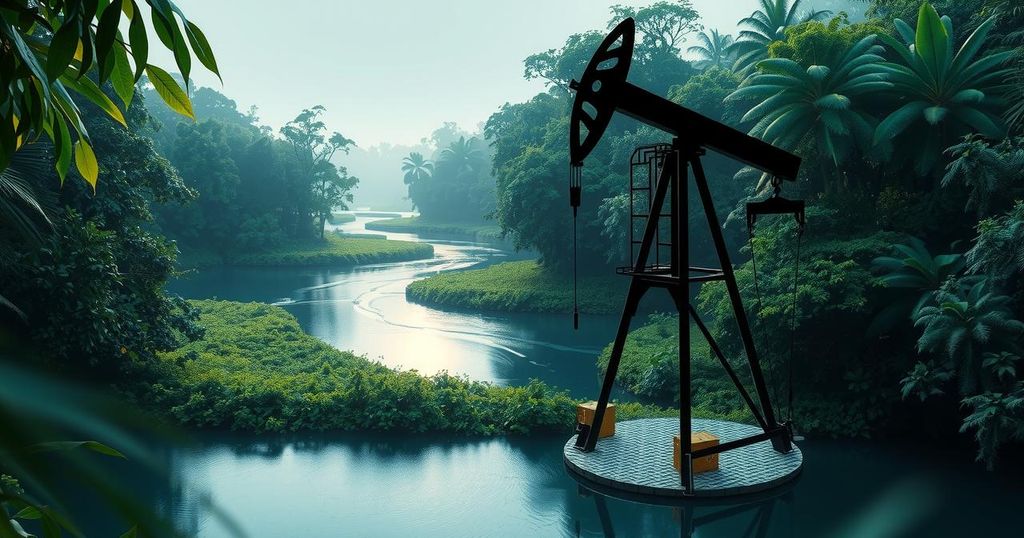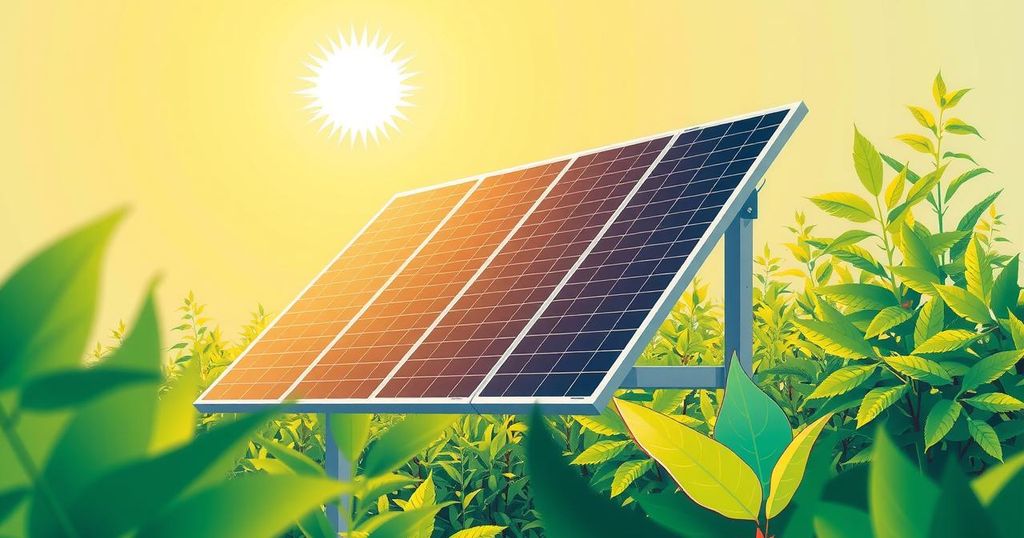Brazilian President Lula da Silva pushes for oil exploration at the Amazon’s mouth despite climate concerns, arguing it will finance renewable energy transition. Critics warn this could harm biodiversity and Indigenous communities, contradicting Brazil’s climate leadership ahead of COP30. The approval process remains under scrutiny as activists highlight the risks associated with drilling in ecologically sensitive regions.
Brazilian President Luiz Inácio Lula da Silva is advocating for oil drilling at the mouth of the Amazon River despite potential environmental risks, a decision that challenges his reputation as a climate leader ahead of COP30. Lula asserts that oil revenues are crucial to funding Brazil’s transition to renewable energy, a claim rebuffed by critics who highlight the absence of solid plans for investing these funds into clean energy initiatives.
Environmental activists warn that approving exploratory drilling would not only threaten biodiversity but also Indigenous communities situated near the proposed sites. The Brazilian government intends to auction over 300 oil blocks in June, including those at the Amazon’s mouth, which could signal a dangerous precedent for further oil exploitation in this ecologically sensitive region.
Lula’s pursuit of oil exploration coincides with Brazil’s recent commitment to international energy forums related to oil production, raising concerns among environmental advocates regarding the implications of these affiliations. Critics argue that Lula’s dual approach of promoting fossil fuels while positioning Brazil at COP30 as a proponent of environmental protection reflects a troubling contradiction in policy.
As Brazil prepares to host the U.N. climate summit, activists express reservations about the approval of drilling licenses, fearing it could undermine the country’s previous successes in reducing deforestation and greenhouse gas emissions. Recent studies suggest that oil extraction from the Equatorial Margin could emit sufficient greenhouse gases to negate the climate benefits achieved thus far.
The oil exploration plans have intensified following a political shift in the Brazilian Senate, where new leadership favors oil extraction. Lula has increased pressure on Brazil’s environmental agency, IBAMA, to approve drilling licenses while downplaying the agency’s responsibility for ecological protection. Environmental groups are concerned that this could result in significant long-term harm to both local communities and ecosystems.
The Equatorial Margin, home to delicate marine ecosystems, faces potential ecological disasters from oil spills or environmental damage from drilling activities. Local Indigenous organizations emphasize the necessity for genuine consultations with affected communities, warning of the irreversible impacts on their way of life.
Petrobras, Brazil’s state oil company, is eyeing vast oil reserves believed to be located along the Equatorial Margin. However, the push for increased drilling is at odds with Brazil’s commitment to reducing fossil fuel use and addressing climate change, especially as climate-related disasters in the country have surged dramatically in recent decades.
The approval of oil drilling at the Amazon’s mouth could lead to a domino effect of further exploration initiatives in the region. Environmentalists argue that this contradicts the rhetoric of environmental conservation, questioning how Brazil can claim to preserve the Amazon while simultaneously risking its natural resources and Indigenous populations.
In summary, President Lula’s support for oil drilling at the mouth of the Amazon raises significant concerns about environmental risks and the impact on local communities. Critics highlight the lack of a coherent strategy for using oil revenues to genuinely support renewable energy initiatives. The potential approval of drilling licenses poses a threat to Brazil’s previous environmental achievements and undermines its position as a leader in climate action, especially in light of the upcoming COP30 summit.
Original Source: news.mongabay.com




